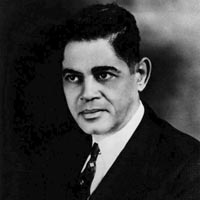Once established, Local 627 quickly evolved into a union of professional musicians. The annual election in December 1925 brought a change in leadership. George Wilkerson, a clarinet player formerly with the W.G. Melford Second Regimental Band and the Criterion Orchestra, moved up from vice president to president. Bandleader Dan Blackburn was elected business agent. Bennie Moten, George E. Lee and Paul Banks won seats on the Board of Directors. These musicians, who played music as a vocation rather than an avocation, advanced the interests of their bands and the union.
The union set a uniform pay scale that gave members a significant pay raise. Musicians who had been forced to earn a living on the road were able to find plenty of work at home. The Lincoln, Eblon and State Theaters employed union members. Paseo Hall, the area's largest ballroom located at 15th and Paseo, provided regular employment for George E. Lee and His Novelty Singing Orchestra, Chauncey Downs' Rinkey Dinks, Paul Banks' Orchestra, Bennie Moten's Kansas City Orchestra, Julius Banks and the Red Devils and other bands fostered by the union.
In 1928, the Kansas City Call credited newly-elected president William Shaw for the union's success. "Simply it would seem, because under the leadership of its new president, William Shaw, well-known here in musical circles, the Musicians Protective Union is doing more than giving itself the name now it is living up to the name, and the members are profiting thereby as they have never profited in Kansas City." A barber by trade, Shaw hailed from Dallas, Texas. He toured as a flutist with the Richards and Pringle Minstrel Show for two years before serving in a U.S. Army band during World War I. Settling down in Kansas City in the mid 1920s, Shaw opened the Goldenwest Barbershop on 18th Street and became active in the musicians union. Elected president in 1928, Shaw instilled discipline and unity in the rank and file. He fined members for infractions and required them to march in the annual labor day parade. ![]() Shaw served as president for the next twenty years, establishing a permanent headquarters and leading the union through the Great Depression and World War II.
Shaw served as president for the next twenty years, establishing a permanent headquarters and leading the union through the Great Depression and World War II.


